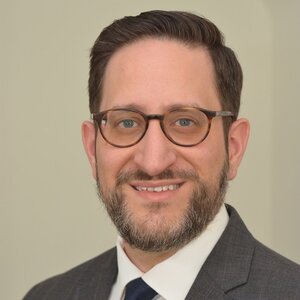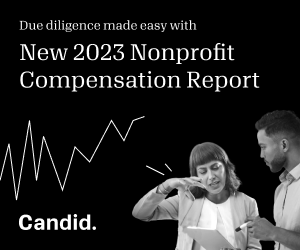Let’s not lose momentum in public health funding

It’s a haunting irony that New Yorkers and the nation have crossed the second anniversary of the COVID-19 lockdowns just as the Senate Committee on Health, Education, Labor and Pensions (HELP) has recommended the PREVENT Pandemics Act to the full Senate—but without a firm commitment to fund it. Can we hope for a bipartisan, sensible outcome that supports a unified response to future crises by funding infectious disease surveillance, forecasting, and preparedness centers?
Indeed, the nearly one million deaths in the United States and six million deaths worldwide to date call for a paradigm shift in which science- and data-driven public health becomes a leading investment focus for government, foundations, and individual donors.
The need for public health funding is as great as it ever has been. Enormous global emergencies are looming—with the spread of COVID-19, polio, and other viruses among Ukrainian refugees as one tragic possibility. There is an urgent need for public health institutions to transform their learnings about COVID-19, Ebola, HIV, and other deadly illnesses into guideposts for preventing or responding to the next pandemic.
Unfortunately, U.S. public health institutions have been underfunded for years. A new study led by researchers from the University of Pennsylvania and funded by the Rockefeller Foundation estimates that a complete overhaul of U.S. health and preparedness could cost $100 billion in the first year alone.
Last year, the Trust for America’s Health called for a modest $4.5 billion—outside of COVID-19 response efforts—to shore up the nation’s core public health capabilities in strengthening emergency preparedness, chronic disease and suicide prevention, health equity, and a diverse and highly skilled public health workforce. On the last point, years of budget cuts have left a shortage of 80,000 full-time public health staff to meet basic community health needs at the state and local levels, according to a research brief from the de Beaumont Foundation and the Public Health National Center for Innovations, a division of the Public Health Accreditation Board.
As a taxpayer-funded graduate school, we at the City University of New York (CUNY) Graduate School of Public Health and Health Policy are focused on preparing the next generation of public health professionals for roles in the healthcare, community health, nonprofit, and corporate sectors. Our students are diverse working adults, heads of households, or caregivers, often the first in their families to attend graduate school or first-generation immigrants to the U.S. Most striking is our students’ motivation to improve health access and equity in their own communities.
The CUNY SPH Foundation plays a crucial role in supplementing funding for the school by filling gaps in resources. More than just an office of advancement, we provide students with scholarship, fellowship, networking, and mentorship support and building blocks of career success; expand distinctive educational offerings such as the first oral population health program in New York; and execute community programming that lifts up the public health of Harlem and New York City overall.
We are continually fortified and inspired by the bold foundations and funders who have stepped forward since the early days of the pandemic. Their support has sustained the careers of our student population, who have suffered disproportionate losses throughout the last two years. Those funders have fueled vital programming and services, raised awareness about vaccines, and improved food access for students and their families.
But now, as the rest of society begins easing into more relaxed behaviors, we must maintain the sense of urgency and the momentum to explore new possibilities in public health.
Public health experts and the vulnerable populations who depend on them continue to face questions such as: Is there a dangerous variant in the wings? Will we be snapped back into isolation? Does anyone care about my unvaccinated children? A CUNY SPH survey in late January revealed that nearly 70 percent of New Yorkers believed that vaccines should be required for indoor activities and for employees in schools and service industries. As those restrictions are rolled back, New York City—as one of the most highly vaccinated but also one of the hardest-hit cities in the nation—must continue to invest in public education, awareness, and prevention around COVID-19.
Public health is a vast and complex subject which has just now come into the public’s lexicon in a new and meaningful way. For many private foundations, philanthropists, and corporations, their investments in public health during the pandemic were game-changing in addressing short-term issues like food and income insecurity, access to health care, and vaccine literacy.
These funders embraced public health as worthy of prioritizing in rethinking their traditional giving categories, and they fueled research, training, community programming, and advocacy that helped to mitigate the pandemic's impact and prepare our students to step onto the front lines of this crisis and the next one that will surely follow.
As we prepare to graduate the first class of students who enrolled for their degree in response to the pandemic, it seems only fitting to make public health a permanent area of funding for these funders. Philanthropy was a powerful and impactful tool to ensure that our students didn’t go hungry, that they were prepared to enter the workforce and competitive to secure jobs which were previously out of reach, and that they were learning in new domains of study never before available in the city.
Masks may be coming off and restrictions may be rolling back, but now is not the time to slow down philanthropic investments in public health. In fact, now is the time to double down. Don’t reduce your attention on public health programming; widen your vision.
This is our chance to rebuild New York City’s public health infrastructure together. It’s time for the most courageous, visionary and inventive private foundations and funders to seize this generational opportunity and envision a new future for public health in New York City, together.
Adam M. Doyno, MPA, CFRE, is executive director of CUNY SPH Foundation, CUNY Graduate School of Public Health & Health Policy.





